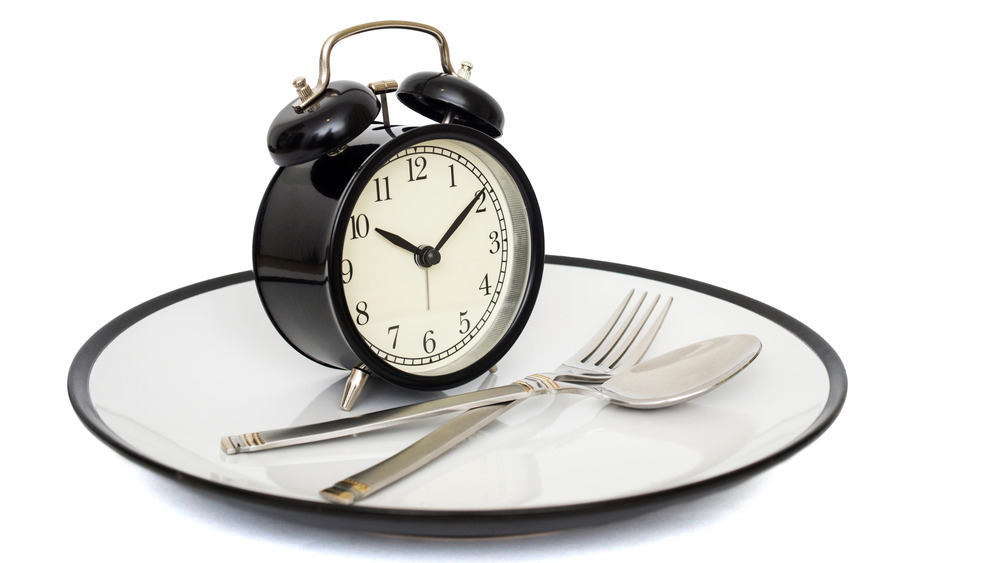Read This If You're Thinking About Intermittent Fasting
If you're looking to make a dietary change, you're bound run into information about or the suggestion to try intermittent fasting (IF). The eating style isn't as much a diet, which limits foods or food groups, as it is a timed approach to eating. Through powerful changes in our metabolism and hormones, it is reported to assist weight loss and improve overall health, according to Healthline.
Dr. James Kelley, M.D., Medical Science Liaison for Fast Bar, spoke with Health Digest about the ins and outs of IF, and how to get started. "Intermittent fasting is a strategy that combines periods of eating with periods of fasting into a regular schedule. These eating or fasting 'windows,' as they're called, help your body to switch from using external energy from your food to using internal energy stored in your liver and muscles, and eventually fat for fuel."
Beginning to fast can be hard, so many people stick with what feels natural to the body. Fasting for 12 hours, then having an eating window of 12 hours, is a common way to begin. In the IF world that's referred to as 12:12. Another option is to fast for 16 hours and eat for 8, or 16:8.
And when you choose to eat, you can augment your hard work by making good choices. Kelley said, "Make sure you're eating healthy, nourishing foods when not fasting, and that you're getting adequate nutrition to support your body's needs."
Preparing to fast can be key
If you're just starting out with IF, there are a few simple things that can make the transition easier, according to Kelley. "Preparing properly for fasting may help to ease you into it — make sure you're getting good quality sleep, and that you're adequately hydrated. When considering fasting for the first time, don't overeat or eat junk food the day before. If you're someone who eats a lot of salt, you may need to lower your salt intake on the days leading up to beginning your fasting, as this will help your body adjust and balance. If you have more-ambitious fasting goals, you may need to prepare longer," he said.
And don't sabotage your efforts with too much indulgence the night before. "Binge eating the night before, eating processed foods that are high in simple carbs and sugars, and diuretics like alcohol and excess caffeine will all make your fast much more challenging and should be avoided," Kelley advised.
And keep in mind to eat reasonable amounts during your eating window to glean the most benefits. The results from IF come from consuming fewer calories overall in a day, so moderate your intake for best success.


